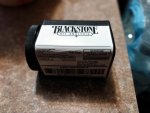taskunitbruiser
Active member
- 111
- 51
- 28
- Location
- Alabama
Fun times. I have been working outside on the engine and had the air intake tube off. I put the hood down last night when finished working. It rained overnight. I noticed water collected in the pipe going into the turbo. I stuck a shop vac in the hole and sucked up all visible water. I suspected/hoped the water wouldn't have gone into the turbo, but guessing it did. I also checked the oil dipstick and it was not milky. I tried to start the engine after, it turns over but doesnt start.
There is standing water on the V-8 valley under the injection pump, but that shouldn't matter, correct? I figured if I moved the vehicle and the engine got hot that water would fall off and/or evaporate.
What is the next step? Taking all the glow plugs out and turning it over? Get water out of the "V"? How screwed am I?
There is standing water on the V-8 valley under the injection pump, but that shouldn't matter, correct? I figured if I moved the vehicle and the engine got hot that water would fall off and/or evaporate.
What is the next step? Taking all the glow plugs out and turning it over? Get water out of the "V"? How screwed am I?



